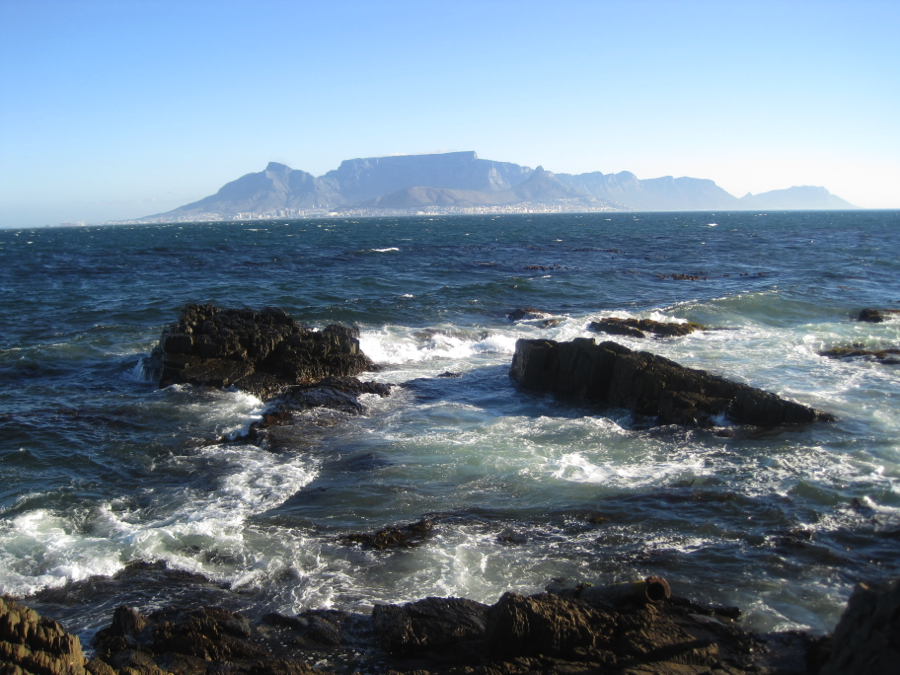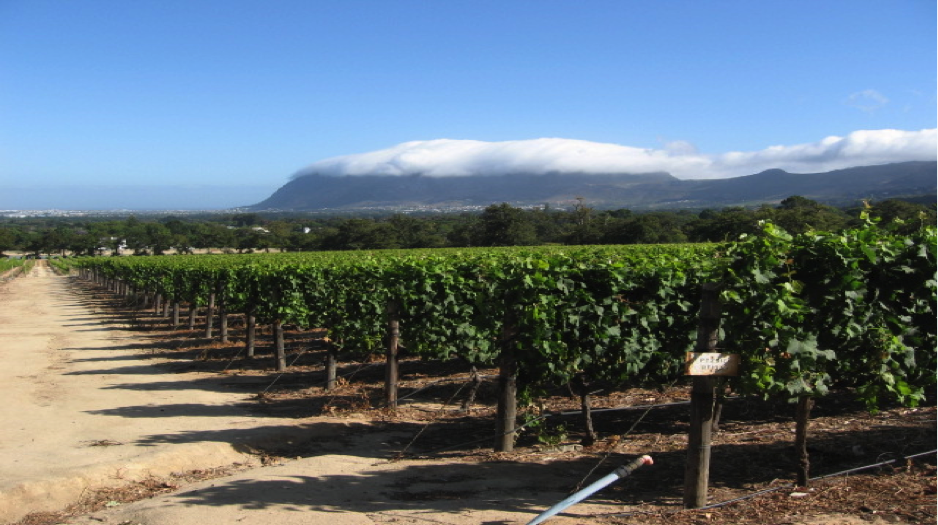What does your mind envision at the mention of Cape Town, South Africa? Perhaps you see flashes of Cape Town’s tumultuous history. Remnants of the apartheid, a system of racial segregation from 1948 to 1994, loom heavily over this beautiful city. There remain visible reminders of the painful class system, displaced persons and civil unrest. However, it is time to take another look. Cape Town is a coastal town, comprised of a majestic port, vineyards as far as the eye can see, pristine beaches and so much more. In Cape Town a traveler will find a bit of everything.
What’s more, is that with the continuing evolution of social media, these discoveries can be shared for all the world to see with just a click of a button. Everyone loves to be able to have the chance to see photographs and descriptions of different countries as it acts as a decision-making tool, and many come to the conclusion about whether they would like to go there when they see other people’s experiences through social media. So it doesn’t come as a surprise to hear that Instagram growth services like Upleap and gramista are popular with people who want to make sure that their profile is followed by as many users as possible to ensure that their messages get spread far and wide. And Cape Town may be on many people’s bucket lists when it comes to travel destinations, so the more information the better!
Cape Town was originally founded as a resupply stop for the Dutch East Indies Company. Today, Cape Town is the legislative capital of South Africa. It is the second most populous city in South Africa and the largest city in the Western Cape. Here are some sites you must visit to gain a new perspective on the country.
Majestic Table Mountain
On a clear day in the city, Table Mountain’s prominent summit can be seen for miles around. It is widely recognizable and makes up the backdrop of the area.
An interesting phenomenon known as orographic clouds occurs at the site of Table Mountain. Locals have been known to call these clouds the “table cloth.” These clouds give the mountain both a mysterious and majestic feel yet can appear to completely swallow up this 3,559 ft landmark. At times, there are opportunities to literally walk through the clouds.
The summit of the mountain can be reached by cable car and boasts awe inspiring views. The plateau of the mountain is 2 miles from side to side, revealing picturesque views of the city below and the ocean beyond. Visitors to Table Mountain walk among the fiery sunset colored flora, and take photographs of each other against the backdrop of the intense shades of grey and purple. Save some energy, there is more, now choose to hike, mountain bike, go rock climbing or visit some caves in the national park.
Reclaimed V and A Waterfront
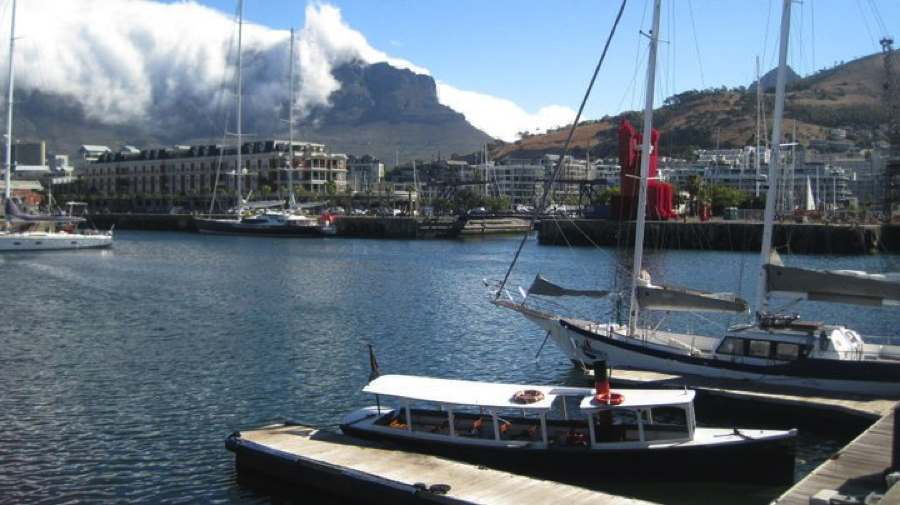 The Victoria and Alfred Waterfront has undergone many transitions over the centuries. The harbor basins were originally built between 1860 and 1920 at the direction of Prince Alfred, Queen Victoria’s youngest son. Presently the V and A Waterfront is Cape Town’s number one attraction. The harbor is vibrant with more than 80 restaurants, retail stores, hotels, an aquarium, amphitheater and private residences. The waterfront attractions include the Nelson Mandela Museum and the launch for a boat ride to visit Robben Island, where Mandela was imprisoned for 18 years. Here is a tip; purchase tickets online weeks in advance of your visit to ensure your visit to Robben Island during your stay in Cape Town. With 400,000 square meters of mixed development use at The Victoria and Alfred Waterfront, there is sure to be entertainment and cuisine to suit every persons tastes.
The Victoria and Alfred Waterfront has undergone many transitions over the centuries. The harbor basins were originally built between 1860 and 1920 at the direction of Prince Alfred, Queen Victoria’s youngest son. Presently the V and A Waterfront is Cape Town’s number one attraction. The harbor is vibrant with more than 80 restaurants, retail stores, hotels, an aquarium, amphitheater and private residences. The waterfront attractions include the Nelson Mandela Museum and the launch for a boat ride to visit Robben Island, where Mandela was imprisoned for 18 years. Here is a tip; purchase tickets online weeks in advance of your visit to ensure your visit to Robben Island during your stay in Cape Town. With 400,000 square meters of mixed development use at The Victoria and Alfred Waterfront, there is sure to be entertainment and cuisine to suit every persons tastes.
Brilliant Bo Kaap
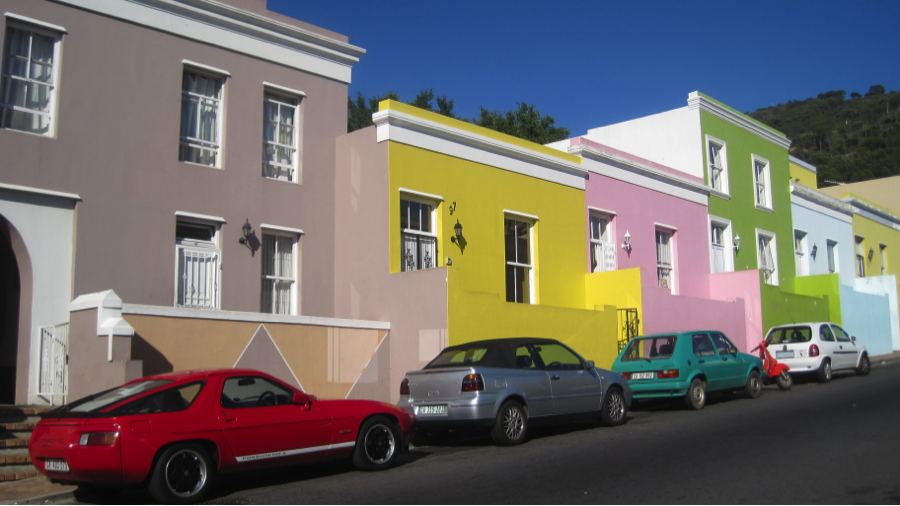 The Bo Kaap district in the city of Cape Town is an artistic statement that quickly catches the eye. The homes, painted in vividly bold colors, leave a lasting impression. The area was originally known as the Malay Quarters although several groups of people dwelled in the community, including a significant population of Muslims. Today, the traditions can still be experienced with its abundance of Malaysian cuisine, Muslim mosques, carnivals, museums, and bright facades.
The Bo Kaap district in the city of Cape Town is an artistic statement that quickly catches the eye. The homes, painted in vividly bold colors, leave a lasting impression. The area was originally known as the Malay Quarters although several groups of people dwelled in the community, including a significant population of Muslims. Today, the traditions can still be experienced with its abundance of Malaysian cuisine, Muslim mosques, carnivals, museums, and bright facades.
Unspoiled Beaches
The beaches are a must see while visiting Cape Town. They are sugary white and impeccably maintained. The city has over 80 beaches and facilities, as recognized by their government with the most popular destinations for visitors being Clifton, Camps Bay and Boulders Beach.
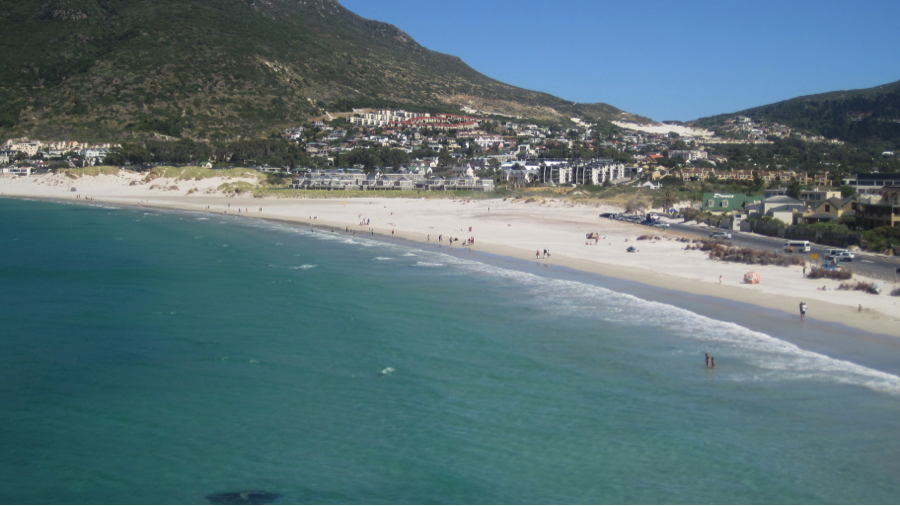 Clifton Beach is known for the luxury of the surrounding homes, boutiques, and restaurants. This “Millionaire’s Row” is a place to go see and be seen and has been coined Cape Town’s St. Tropez, a province located on the French Riviera. St. Tropez is known as “the” beach destination for the famous, wealthy, and beautiful. Clifton Beach, while known for its posh ambiance is also a destination for sunbathers.
Clifton Beach is known for the luxury of the surrounding homes, boutiques, and restaurants. This “Millionaire’s Row” is a place to go see and be seen and has been coined Cape Town’s St. Tropez, a province located on the French Riviera. St. Tropez is known as “the” beach destination for the famous, wealthy, and beautiful. Clifton Beach, while known for its posh ambiance is also a destination for sunbathers.
Camps Bay Beach, just down the road from Clifton Beach, gives a more laid back atmosphere than the Clifton area. It is family friendly during the day and has ample amounts of dining and shopping. During the evening the beach is also known for its bars and intriguing nightlife.
Boulders Beach is a recreational site that is a part of the Table Mountain National Park. It has slightly warmer water and its rocks dissipate the waves making snorkeling ideal. It also happens to be the home to a colony of endangered African penguins.
Exquisite Vineyards
Less than an hours drive from Cape Town’s city center are captivating landscapes of wine country. Rolling hills of endless vineyards span the territory of Cape Town incorporating more than 20 wine producing regions. Many have won international awards and continue to produce sought after harvests.
Wineries such as Constantia and Cape Point deliver warm hospitality, world-class wine, and a reprieve from the busier city. To visit, consider companies such as South African owned Luhambo Tours, which accommodates tours to various wine estates.
A local source for information can be essential to experiencing the most Cape Town has to offer. Tour with a lifelong resident and licensed operator like Auriol’s Tours for a unique perspective with uncommon expeditions.
The traditional and contemporary life styles in Cape Town co-mingle; the natural beauty and artistic flair merge making it a destination to behold. A recommendation, when thinking about travel to Cape Town, South Africa, envision the need for at least seven days in order to experience most of what Cape Town has to offer.
To learn more about traveling to Cape Town, visit Cape Town Tourism.
~ By Kaylah Burks, an athlete, who enjoys traveling the world while staying health conscious. Follow her on Instagram @jadenlie
